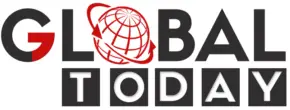Three-day World Urdu Conference inaugurated under the aegis of the National Council for Promotion of Urdu Language
New Delhi: Urdu is not just a language; it is a culture, a way of life, and a globally enriched language that can contribute to India’s progress and help the nation reach new heights. These thoughts were expressed by renowned intellectual and thinker Ram Bahadur Rai in his presidential address at the inaugural ceremony of the three-day World Urdu Conference, organized by the National Council for Promotion of Urdu Language. He further emphasized that while Urdu should take pride in its past and present, it is equally important to make it a language of science and technology to fulfill the vision of a prosperous India. He urged that this should be the primary agenda of the conference. He congratulated the Council’s Director for organizing this historic conference and assured that under his leadership, the Council would take necessary steps to promote Urdu and integrate it into the Viksit Bharat Abhiyan.
Indresh Kumar, a senior guide of the Muslim Rashtriya Manch, stated that a common feeling of patriotism would play a crucial role in the development of a progressive India. He added that just as India had a glorious past, it could have a bright future, and Urdu, along with other Indian languages, could play a significant role in achieving this goal.
The conference began with the national anthem and a traditional lamp-lighting ceremony. The Council’s Director welcomed all the guests with bouquets, shawls, and mementos.
In his opening remarks, Dr. Shams Equbal welcomed the guests and highlighted the objectives of the conference. He stressed that the vision of a developed India is a national dream, and collective participation from all sectors of society is necessary to achieve it. He pointed out that Urdu, along with other Indian languages, has played an extraordinary role in nation-building and will continue to do so. He also emphasized that the research papers and discussions at the conference would not only illuminate new pathways for Urdu’s development but also contribute to the realization of the “Viksit Bharat” project.
Speaking at the event, Suman Dixit, Director of the Language Department, Ministry of Education, Government of India, described Urdu as a beautiful language, with its words found in almost every Indian language, making it unique. She noted that since 1996, the Council has been working to promote Urdu through various initiatives, and this World Urdu Conference is a part of that effort. She further emphasized the need to take Urdu beyond books and make it accessible to everyone. She urged that Urdu should not only be seen as the language of the elders but also as the language of the new generation. She stressed the importance of Urdu’s presence on social media and digital platforms and its role in nation-building.
Conference guest of honor, Professor Ehtesham Hasnain, noted that the theme of the conference is “Viksit Bharat,” and cultural phenomena play a significant role in this vision, including Urdu, which has a vast vocabulary. He asserted that Urdu is an Indian language, with 99% of its verbs rooted in Sanskrit, and he welcomed the growing interest of the younger generation in Urdu.
Distinguished guest Yuvraj Malik, Director of the National Book Trust (NBT), called the conference a memorable event and congratulated Dr. Shams Iqbal for its successful organization. He stated that India is not just a country but a culture, and languages are a representation of its rich heritage. He further emphasized that the concept of a “Viksit Bharat” goes beyond economic development, encompassing intellectual, social, cultural, spiritual, and linguistic progress. He stated that Urdu should not remain confined to literary and cultural discussions but should also embrace scientific and technological subjects. He advocated for translating Urdu works into other languages and vice versa to broaden the exchange of knowledge.
The inaugural session of the three-day conference concluded with the national anthem. A large number of Urdu intellectuals, educators, and enthusiasts from India and abroad attended the event, marking a significant milestone in the promotion and advancement of the Urdu language.
